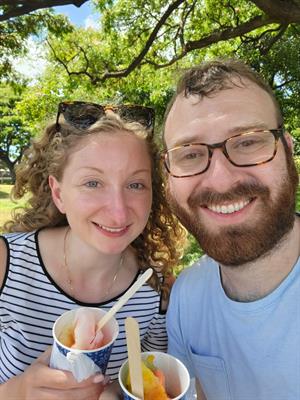Health Equity
Medicaid Enrollment Touches 39% of the Residents of The District of Columbia; DC’s 70/30 FMAP is Vital for the Maintenance of Health & Human Services
A reduction in the District’s FMAP would not lead to long-term government savings and would have a ripple effect throughout the entire health system in the DMV, crippling access to care for not only Medicaid beneficiaries but also all those who live, work, and visit the District of Columbia, including members of Congress and their staffs.
.png?sfvrsn=9ac2d21b_0)
Why does DC receive an Enhanced FMAP Rate?
The DC FMAP rate of 70% established by the Revitalization Act resulted from bipartisan analysis, discussion, and negotiation by Congressional leadership aiming to balance fairness with the District’s restricted ability to generate revenue. Congress recognized that the District of Columbia faces unique financial challenges due to its non-state status and the significant amount of federally-owned land within its boundaries. The District is unable to tax non-residents’ earnings, so these workers pay no taxes to support the infrastructure and services, such as roads, public safety and emergency services that they benefit from in the District. The District is also unable to tax up to 40% of the real property within its borders due to statutory restrictions.
Why are we concerned about DC's FMAP now?
Members of Congress have proposed reducing the DC FMAP to the statutory minimum for all other states, which is currently 50% (but could be reduced even more). Such a change would impact every physician and every practice, regardless of type, location, and payers contracted. Even practices who take no insurance will not be able to send patients for specialist care, hospital admissions, or other types of care.
What can MSDC members do?
- If you know a member of Congress or staffer, reach out to them and share how DC cuts will hurt your patients.
- Share your relationships and outreach with hay@msdc.org so we can help coordinate advocacy efforts.
- Email hay@msdc.org if you would like to be paired with a physician member of Congress office and trained by MSDC staff on how to reach out.
Resources
- DC FMAP cut fact sheet
- California Medical Association fact sheet on Medicaid cuts
- MSDC and healthcare association letter to Congress arguing against DC FMAP changes.
- MSDC original story on Medicaid changes.
News, Statements, and Testimony on Health Equity Issues
MSDC Member Dr. Zelivianskaia: From Moscow to Nebraska

Only bits and pieces from her early childhood years remain in Dr. Zelivianskaia’s memory of Moscow. Having been back several times as an adult, she can attest to the city’s beauty, charm, culture, and varied history.
When she was only eight years old, her father, who worked as a medical center scientist, relocated the family from Moscow to the Midwest state of Nebraska. Although the culture shock was significant, she had a good support system while she settled. “Thankfully, I had a wonderful third grade teacher who took me under her wing and gave me the attention I needed to learn English and get up to speed with my classmates,” she recalled.
Six years later the family moved again to Chicago. “I lived in a culturally diverse community in the north suburbs of Chicago,” she said.
With scientists in her family, she knew early on that she was going to pursue medicine during her undergraduate studies at the University of Chicago. “I remember flipping through the course book to see what interested me. Initially, I was most drawn to biology and focused on that for several years before adding a double major in anthropology, which really broadened my perspective,” said Dr. Zelivianskaia.
Her studies awoke a passion for public health and how to address health disparities. Her focus soon narrowed to medical anthropology, which is the study of how health and illness are shaped culturally, which she then applied to the public health field. “We cannot treat and improve health if we are not looking at the factors that influence it,” she explained.
Throughout her career, Dr. Zelivianskaia has taken great care to address the cultural nuances of her patients. “In older Asian families, for example, the whole family may be in the exam room and regardless of who the patient is, the doctor needs to be culturally sensitive and deduct whether it is most appropriate to address the oldest family member in the room, the patient themself, or another member,” she explains.
Dr. Zelivianskaia will become an attending this summer when she finishes her fellowship. She then hopes to open her own OBGYN practice and welcome new patients.
Dr. Zelivianskaia satisfies her continued interest in anthropology with travel. “I love to study different cultures and different settings. Travelling gives me a fresh perspective,” she said adding, “It is also a great way to reset.”
She and her husband, Jean Paul, have travelled to Lisbon, throughout Spain, and spent time in Iceland this past December.
At home they enjoy soaking up local culture from their Adams Morgan home. “We love the D.C. museums and food scene,” she said.
During COVID she and her husband, Jean Paul, started painting large paint-by-number canvasses. “I tried a lot of things during COVID, painting and sour dough bread were two that stuck. We also spent a lot of time looking for board games for just two players,” she said. Two of their favorites are Harry Potter Hogwarts Battle and the tile game Azul.
Dr. Zelivianskaia joined the Medical Society of Chicago early in her residency and continued her membership with MSDC when she relocated to the District. “I love the networking, connections, and resources MSDC offers,” she said. She finds the mentorship important for early career physicians, “it really helps to combat burnout” she said.
While Dr. Zelivianskaia plans her next travel adventure, she and her husband are happy at home with their Beagle/Border Collie rescue dog, Madden. Adopted in January 2020, Madden is living the good life, never having been left home alone.

Leave a comment